

Project Overview
案例概述
In 2022,the organization was selected by the Vanke Foundation for its project titled "Hand in Hand: Zero-Waste School Construction for Sustainable Community Living". Focusing on waste reduction and food waste prevention under the broader context of climate change, the project promoted the core principles of zero-waste school initiatives, disseminated environmental education knowledge, and conducted practical activities such as composting, eco-enzyme production, and vermicomposting (worm towers). Additional activities included community film screenings followed by guided discussions and prize-winning quizzes, all designed to advocate green, low-carbon, and circular ecological principles. The project also aimed to cultivate a team of "young environmental promoters" to help extend environmental awareness from schools to families through the "hand in hand" approach. Originally scheduled to run from August to December2022, the project timeline was extended to April 2023 due to unforeseen pandemic-related disruptions, following approval from the organizer.
2022年机构以小手拉大手,“零废弃学校建设”助力可持续社区生活主题入选万科公益基金会项目征集。我们围绕气候变化下的垃圾减量议题、减少食物浪费议题,在校园推广“零废弃学校建设”项目的核心理念,传播环境教育知识,开展堆肥、酵素制作、蚯蚓塔等实践活动、观影导赏有奖知识问答活动等,倡导绿色、低碳、循环的生态文明理念,培育“小小环保宣传员”队伍,希望以小手拉大手的形式,将环保理念从校园走入家庭。项目期限时间为2022年8月-12月(项目执行期间受疫情不可控因素影响,经向主办方申请延期至2023年4月)。
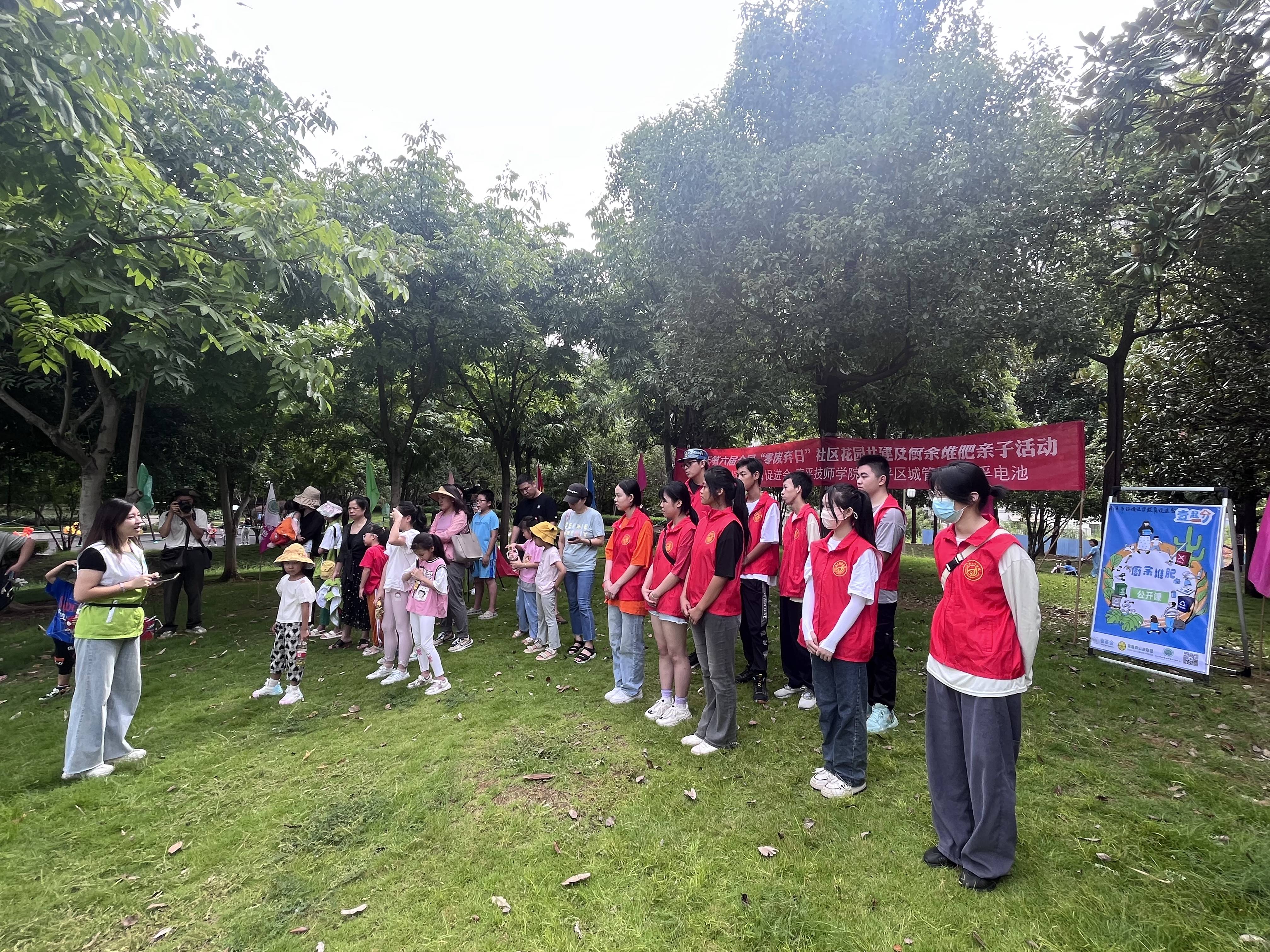
The total project budget was ¥57,995, with actual expenditures amounting to ¥58,360. The Vanke Foundation provided funding support of ¥30,000, while the remaining¥28,360 was self-raised through government-purchased services and corporate sponsorship for environmental advocacy.In collaboration with local primary and secondary schools, communities, universities, media outlets, and businesses, the project carried out a series of face-to-face environmental activities under the main theme: "Zero-Waste School Construction for Sustainable
Community Living: Practice and Exploration in Reduction, Recycling, and Safe Disposal of Waste at the Source."
项目预算为5.7995万元,实际开支58360元,万科公益基金会资助3万元经费,自筹经费28360元,主要来自政府购买服务及企业环保宣传经费的支持。项目联合当地的中小学及所在社区、高校、媒体、企业,以“零废弃”学校建设助力可持续社区生活--垃圾分类源头减量化、资源化、无害化的实践与探索“为主线,开展了环保“面对面”系列主题活动。
Company/Organization Profile
机构简介
The Nanping Environmental Protection Education Association was registered and approved by the Nanping Civil Affairs Bureau in October 2015 as a non-profit social organization with independent legal person status. Dedicated to promoting the concept of sustainable living, creating platforms for public participation in environmental practices, and popularizing environmental protection knowledge and skills, the association also provides exchange and learning opportunities for youth environmental volunteer services while spreading the spirit of volunteerism. Over the past decade, it has conducted nearly 900 public welfare activities in schools, communities, and rural areas, engaging over 30,000 volunteers and inspiring more than 100,000 people to pay attention to environmental issues.
南平市环境保护教育促进会于2015年10月经南平市民政局审批注册,具备独立法人资格的非营利性社会团体。以倡导可持续生活理念、搭建公众参与环保实践的平台、科普环境保护知识和技能,为青少年环保志愿服务 搭建交流学习平台,传播志愿服务精神,十年来在校园、社区、乡村等开展近900场公益活动,参与活动的志愿者达3万余人次,影响带动10万余人关注环境议题。
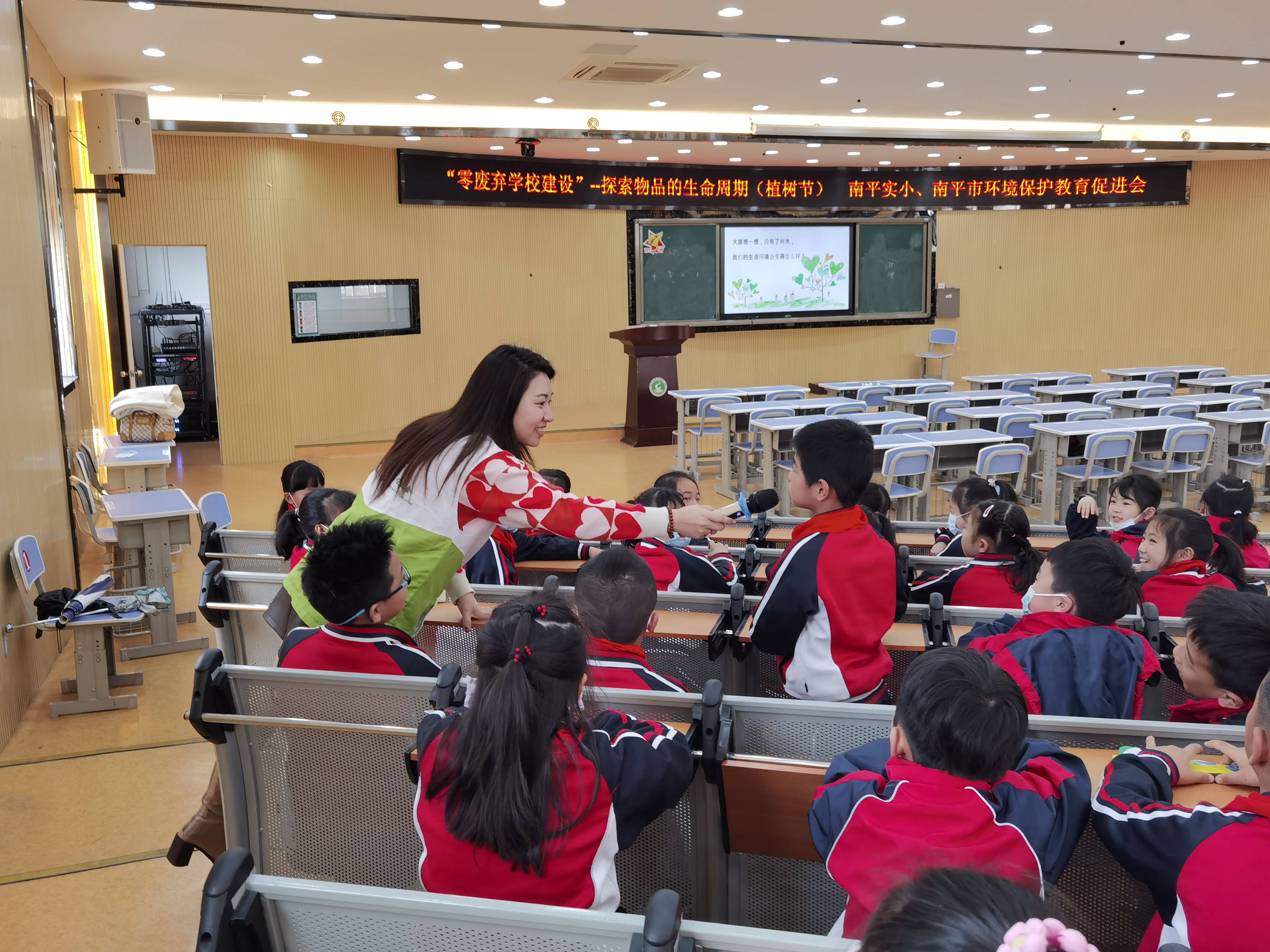
In the past five years, the association’s series of environmental themed activities have been shortlisted in project calls organized by the Fujian Provincial Environmental Education Center, the Environmental Education Center of the Ministry of Ecology and Environment, the Vanke Foundation, the China Environmental Protection Federation, and the Nanjing University (Lishui) Ecological Environment Research Institute. The association has also received strong support from relevant local government departments and enterprises such as State Grid Nanping Power Supply Company and Nanfu Group. Its work has been covered multiple times by mainstream media outlets including Minbei Daily and Nanping Radio and Television Station.
近五年系列环保主题活动先后入围福建省生态环境部宣教中心,生态环境部宣教中心、万科公益基金会、中华环保联合会、南京大学(溧水)生态环境研究院等的项目征集,以及当地政府相关部门和国网南平供电公司、南孚集团等企业鼎力支持,得到主流媒体闽北日报、南平广播电视台多次报道。
Project Outcome
项目成果
1. Yanping District- Yuping Park: Established a fallen leaf composting practice base for zero- waste park construction. Collected 500+kg of fallen leaves and 200kg of kitchen waste for composting. Conducted five composting science promotion activities, with a cumulative participation of 230 person-times.
2. Yanping District-Nanping Experimental Primary School: Established a fallen leaf and kitchen waste composting practice base for zero-waste school construction.Processed 300 kg of fallen leaves and 160kg of kitchen waste. Conducted five composting and eco-enzyme production science practice activities, with a cumulative participation of 150+person-times.
3. Yanping District - Nanping No.1Middle School: Established a fallen leaf and kitchen waste composting practice base for zero-waste school construction. Processed 800 kg of fallen leaves and 300 kg of kitchen waste. Conducted six composting and eco-enzyme production science practice activities, with a cumulative participation of 1,500 person-times.
4. Jianyang District - Nanping Waste Classification Theme Park: Processed 100 kg of fallen leaves and 50 kg of kitchen waste. Conducted six composting and eco-enzyme production science practice activities, with a cumulative participation of 50 person-times.
5. Zero-Waste Construction Themed Lectures and Experience Activities: Conducted seven sessions across six schools in Nanping and Xinhua Bookstore, with a cumulative participation of 300 person-times.
1、延平区-玉屏公园,零废弃公园建设落叶堆肥实践基地,收集园内落叶500kg+厨余堆肥200kg,开展五场堆肥科普宣传活动,累计230人次参与活动。
2、延平区-南平实验小学,零废弃学校建设落叶厨余堆肥实践基地,落叶300kg+厨余160kg,开展五场堆肥、环保酵素制作科普实践活动,累计参与人数150+人次参与活动
3、延平区-南平一中,零废弃学校建设落叶厨余堆肥实践基地,落叶800kg+厨余300kg,开展六场堆肥、环保酵素制作科普实践活动,累计参与1500人次
4、建阳区-南平市垃圾分类主题公园,落叶100kg+厨余50kg,开展六场堆肥、环保酵素制作科普实践活动,累计参与人数50人
5、南平市六所学校及新华书店开展的零废弃建设相关主题宣讲及体验活动,累计七场参与人数300人。
Project Highlights
项目亮点
The "Zero-Waste Construction for Sustainable Communities" project has received technical and financial support from the Nanjing University (Lishui) Ecological Environment Research Institute, the Vanke Foundation, and the Fujian Provincial Ecological Environment Education Center. Relevant local government departments, primary and secondary schools, and enterprises have provided support for composting sites and facility construction. Vanguard volunteer teams from universities and enterprises actively contributed to the development of the zero-waste practice bases. Schools adapted the project activities into scenario-based dramas, which were entered into provincial and municipal Youth Science and Technology Video Festivals, winning first prizes. The zero-waste construction initiative has been highly recognized by school leaders in the participating primary and secondary schools, leading to invitations to provide design and construction guidance for campus labor practice bases.
零废弃建设助力可持续社区项目分别得到南京大学(溧水)生态环境研究院与万科公益基金会以及福建省生态环境宣教中心技术和资金支持,当地政府相关部门和中小学校、企业给予堆肥场地和设施建设支持,高校和企业党员先锋队积极赋能零废弃实践基地建设活动,学校将活动编导成情景剧参加省、市青少年科技影像节评选,分获一等奖,零废弃建设项目得到落地中小学校领导高度认可,受邀参与校园劳动基地建设的设计施工指导。
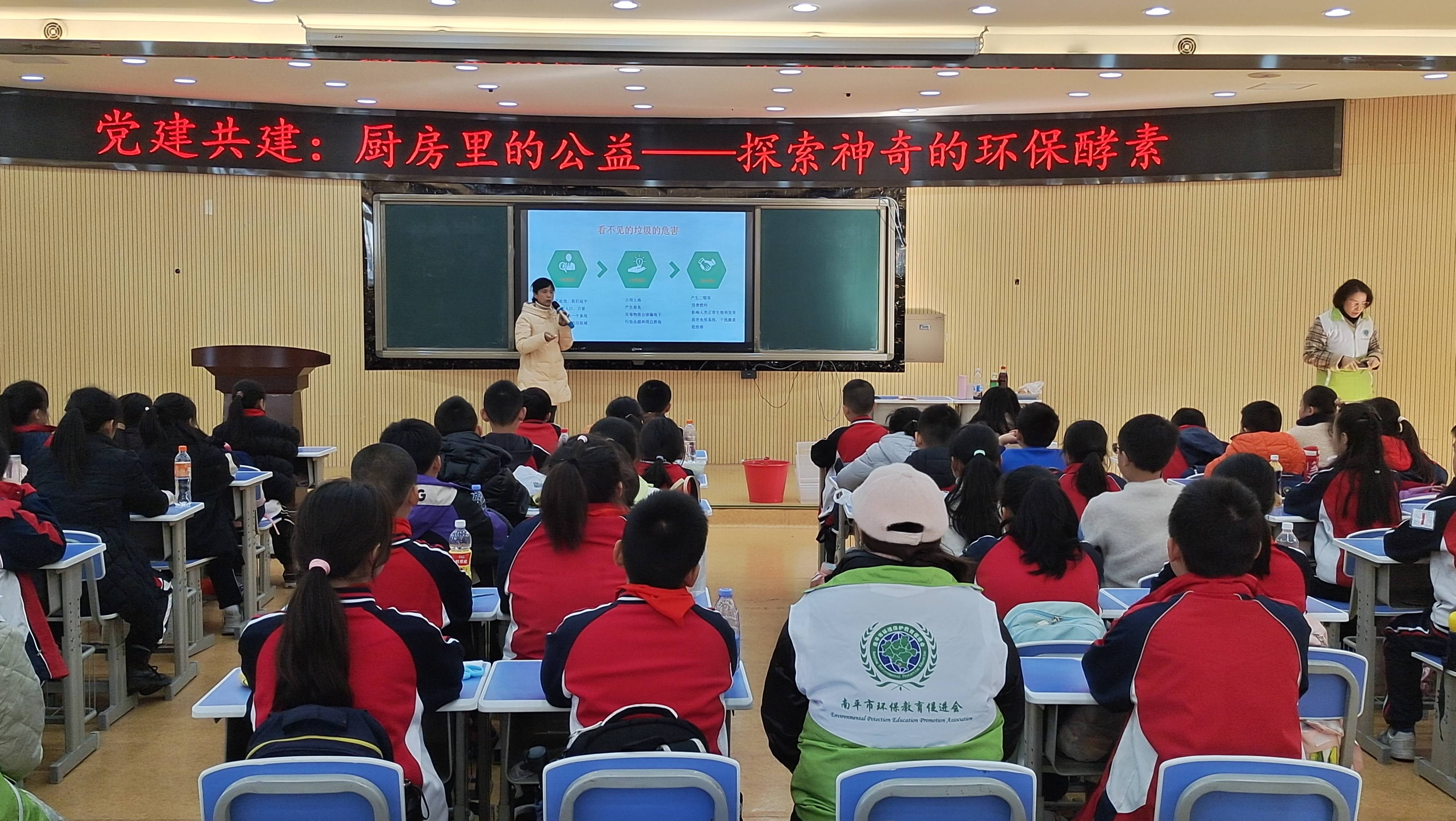
Project Implementation
项目实施
I.Brief Implementation Plan and Process of the Project
Since 2019, our organization has taken "Zero Waste Development" as its core mission. Through a tripartite model of "concept promotion – practice cultivation – system building," we have systematically advanced the behavioral optimization and capacity building of green space users. The specific implementation process is as follows:
1. Concept Promotion and Foundational Cultivation (2019-2021)
(1) Promoted the concepts of waste reduction, resource recovery, and harmless treatment at the source through waste classification initiatives in universities and primary/secondary schools. Conducted practical activities such as kitchen waste and garden leaf composting, eco-enzyme production, and old clothes repurposing.
(2) Trained student volunteers through the "Firefly Environmental Promoter Training Program" to advance environmental practices on campuses.
(3) By being selected as a partner in the National Community Kitchen Waste Composting Platform project (jointly initiated by Nanjing University and the Vanke Foundation), dispatched volunteers to participate in professional training and obtained the first batch of National Composting Trainer Certifications.
2. Practice Base Construction and Scaling Up (2022-2023)
(1) Utilized waste materials to create environmental education and labor practice bases for 5 schools, establishing demonstration sites for "Zero Waste School" practice bases.
(2) Established zero-waste practice bases in parks, schools, and enterprises, including: two urban parks (for leaf composting), three primary/secondary schools (for kitchen waste composting and planting practices), one university (comprehensive practice base), and one enterprise (for fermenting and recycling chicken manure and waste mushroom residues). Cultivated 10 composting enthusiasts (covering university students, primary/secondary school teachers and students, returning youth, social organization volunteers, corporate party member volunteers, etc.).
3. Systematization and Regional Promotion (2024-Present)
Leveraging the professional guidance of the CCCP Community Composting Platform, we are building a localized evaluation system for green space users.
Invited to guide the establishment of new "Zero Waste Labor Practice Bases" on campuses, expanding the project's practice coverage.
一、实施方案与过程
自2019年起,本机构以“零废弃建设”为核心,通过“理念推广-实践培育-体系构建”三位一体模式,系统性推进绿色空间使用者的行为优化与能力建设。具体实施过程如下:
1.理念推广与基础培育(2019-2021年)
(1)在高校和中小学校推广垃圾分类源头减量化、资源化、无害化理念,开展厨余与园林落叶堆肥、环保酵素制作、旧衣改造等实践活动。
(2) 通过“萤火虫环保宣传员培育计划"培训学生志愿者,推动校园环保实践。
(3)通过入选全国cccp社区厨余堆肥平台伙伴项目(南京大学与万科公益基金会联合发起),派出志愿者参与专业培训,获得首批全国堆肥培训师资格证。
2.实践基地建设与规模化拓展(2022-2023年)
(1)利用废弃物为5所学校打造环境教育与劳动实践基地,建立“零废弃学校"实践基地示范点。
(2)在公园、学校、企业落地零废弃实践基地,包括:两个城市公园(落叶堆肥处理)、
三所中小学校(厨余堆肥与种植实践)、一所高校(综合型实践基地)、一家企业(鸡粪与废弃菇渣等发酵资源化)。培养10名堆肥爱好者(覆盖高校学生、中小学师生、返乡青年、社会组织志愿者、企业党员志愿者等)。
3.体系化与区域推广(2024年至今)
借助 cccp社区堆肥平台专业指导,构建本土化绿色空间使用者评价体系。
受邀指导校园新建"零废弃劳动实践基地",扩大项目实践覆盖范围。
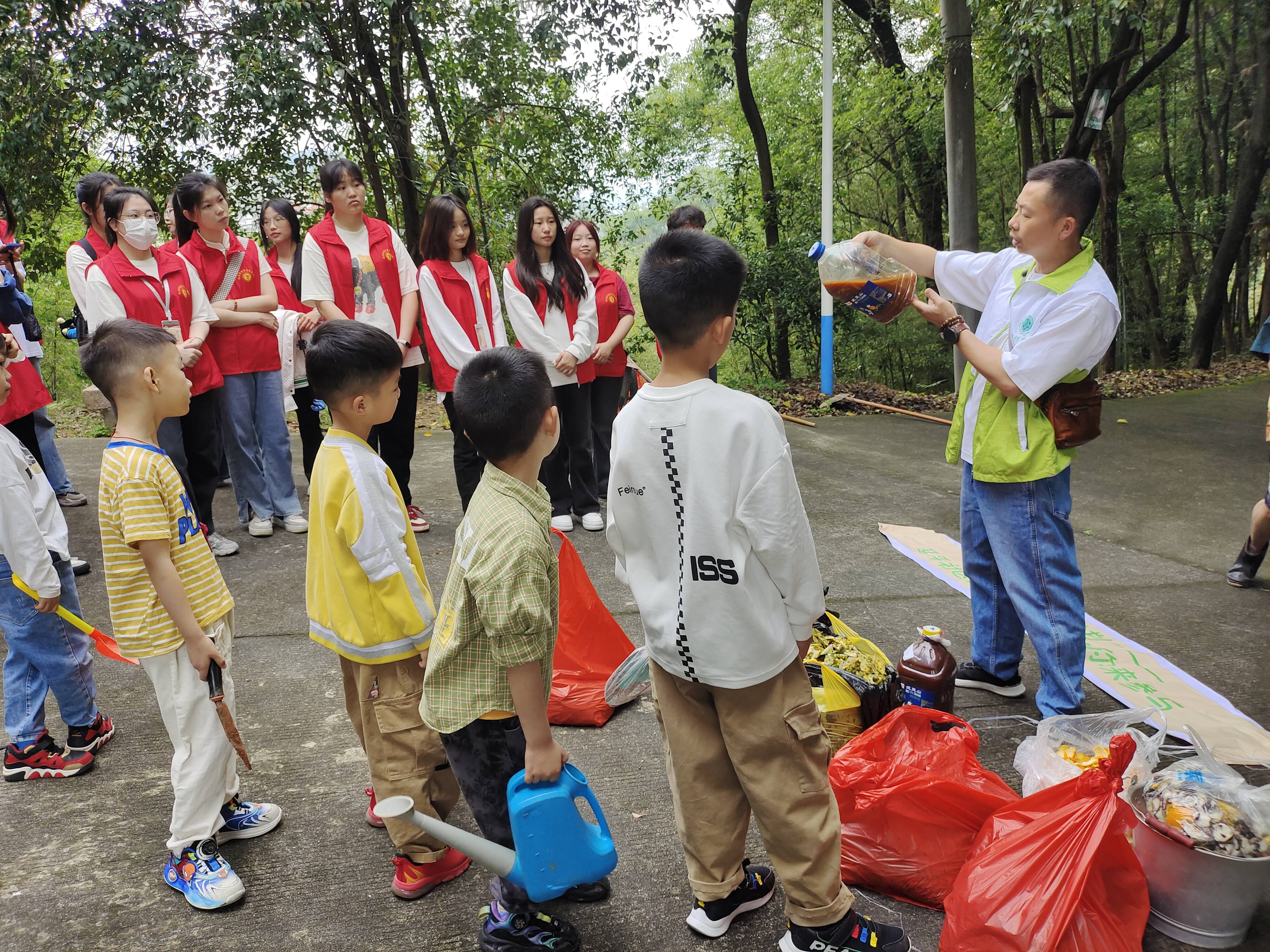
II. Comparison Before and After Implementation
1. Pre-Implementation Status: Concepts of waste classification and resource recovery remained at the promotional level, lacking practical vehicles. Organic waste (kitchen waste, fallen leaves) from campuses and parks was directly transported away for disposal, resulting in significant resource waste. The public held cognitive biases about resource recovery technologies like composting (e.g., concerns about odor, flies, and mosquitoes).
2. Post-Implementation Results
Reduction and Resource Recovery: Significant reduction in the monthly volume of leaves transported from parks and kitchen waste from campuses. Compost products replaced commercial organic fertilizer, substantially reducing costs in base planting areas.
Capacity Building: Cultivated 10 composting enthusiasts with a certain level of professional competence (subsequent plans include collaborating with the Human Resources and Social Security Bureau and the Urban Management Bureau to develop compost trainer certification training), supporting regional zero-waste practices. Established 7 zero-waste practice bases with significant results in treating organic waste.
Behavioral Change: Through park composting experience activities, alleviated residents' concerns about composting, promoting voluntary and proper waste classification among residents.
二、实施前后对比
1.实施前现状: 垃圾分类与资源化理念停留在宣传层面,缺乏实践载体。校园及公园的有机废弃物(厨余、落叶)直接外运处理,资源浪费严重。公众对堆肥等资源化技术存在认知偏差(如担心异味、蚊蝇)。
2.实施后成效
减量化与资源化: 公园月度落叶外运量和校园厨余垃圾减量明显。堆肥产物替代商用有机肥,显著降低基地种植区成本能力建设:培养具备一定专业素养的堆肥爱好者10名(后续拟与人社局、城管局合作开展堆肥师认证培训),支撑区域零废弃实践。建7个零废弃实践基地,处理有机废弃物成效显著。
行为改变: 通过公园堆肥体验活动,消除居民对堆肥的顾虑,推动居民自愿做好垃圾分类。
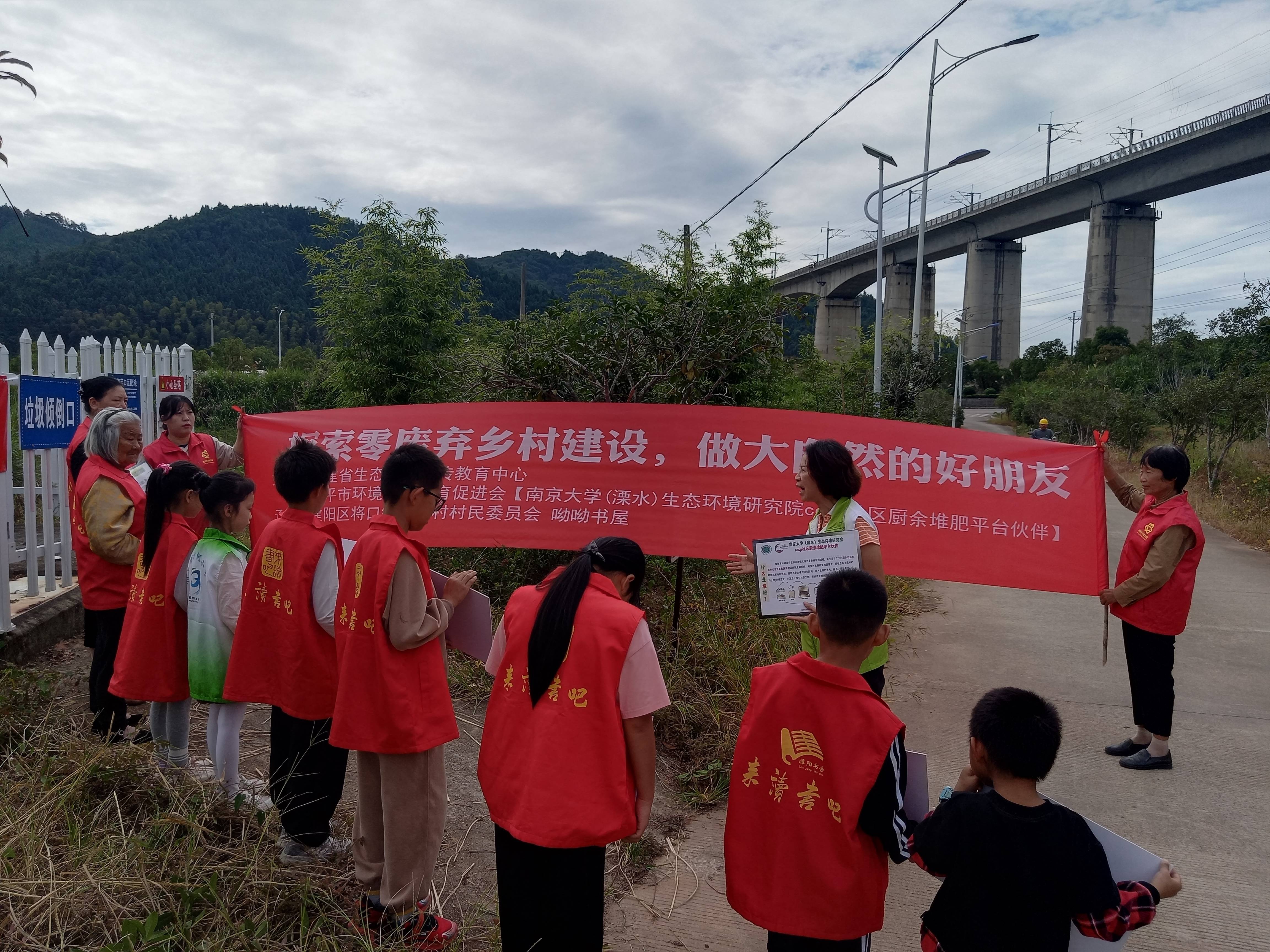
III. Challenges Overcome and Support Received
1. Major Challenges
Insufficient Funding: Addressed by recruiting volunteers to collect discarded materials and self-designing and building practice bases, avoiding material and design costs. Site Selection Difficulties: Prioritized establishing demonstration points in parks; demonstrated feasibility through two years of complaint-free operation, gradually securing sites in campuses and enterprises. Public Cognitive Barriers: Overcame misconceptions about compost odor and pollution through hands-on experience activities (e.g., composting operation demonstrations in parks).
2. Internal and External Support
Internal Support:
The core team includes one professionally certified composting trainer and ten composting enthusiasts with two years of practical experience, possessing independent training and base construction capabilities. Developed standardized curriculum systems (kitchen waste composting, enzyme production, used-clothes upcycling).
External Support:
(1) Policy Support: Obtained approval from local government and education departments to conduct composting practices in public spaces, and soon to be included in the "Carbon Inclusive Platform" of the China Carbon Metrology Center located in our institution's area (Yanping District, Nanping City, Fujian Province).
(2) Professional Support: Collaborated with Nanjing University (Lishui) Ecological Environment Research Institute, participating in national-level composting training programs.
(3) Social Resources: Selected as a partner in the National Community Kitchen Waste Composting Platform project, receiving professional technical guidance from the university, testing and certification support from authoritative institutions, and experience sharing from platform partners nationwide; multiple local schools and enterprises actively participated in the co-construction of bases, sharing resources.
三、克服的挑战与获得的支持
1.主要挑战
资金不足:通过招募志愿者收集废弃物料,自行设计建造实践基地,规避物料与设计成本。选址困难:优先在公园建立示范点,通过2年无投诉运营证明可行性,逐步争取校园及企业场地。公众认知障碍:通过实地体验活动(如公园堆肥操作示范),逐步消除对堆肥异味与污染的误解。
2.内部支持:
核心团队包含一名专业认证堆肥培训师及2年实践经验的堆肥爱好者十名,具备自主培训与基地建设能力。开发标准化课程体系(厨余堆肥、酵素制作、旧物改造)。
3.外部支持:
1)政策支持:获得地方政府与教育部门批准,在公共空间开展堆肥实践,并即将纳入位于本机构所在地的中国碳计量中心(福建省南平市延平区)的“碳普惠平台"。
2)专业支持:与南京大学(溧水)生态环境研究院合作,参与国家级堆肥培训项目。
3)社会资源:入选全国社区厨余堆肥平台伙伴项目的高校专业技术指导和权威机构检测认证支持以及来至全国各地平台伙伴的经验分享;多所在地学校及企业主动参与基地共建,共享资源。

IV. Summary
Through five years of continuous practice, this project has validated the effectiveness of the three-tier promotion model of "Park – Campus – Enterprise." It has achieved a transition from concept promotion to behavioral change, and from individual participation to system building. Future plans include expanding the scale of practice bases, refining the green space user evaluation system, and providing grassroots practice examples for the construction of "Zero Waste Cities" and the achievement of the dual carbon goals.
四、总结
本项目通过持续5年的实践,验证了“公园-校园-企业”三级推广模式的有效性,实现了从理念宣传到行为改变、从个体参与到系统构建的转型。未来计划扩大实践基地规模,完善绿色空间使用者评价体系,并为“无废城市”建设及实现双碳目标提供基层实践范例。
Project Impact & Sustainability
项目影响力、可推广性与可持续性
1. Innovation in Waste Disposal Model: To address the issues of high disposal costs and low resource utilization rate for urban domestic waste, an on-site co-composting model for kitchen and green waste was proposed. This model enables the conversion of waste into resources within a small space, reducing disposal costs and improving resource utilization. The compost products can be used for soil improvement or sold externally, supporting the sustainable operation of the project.
2. Innovation in Common Key Technologies: A "sandwich-like" compost structure for kitchen waste and green waste was proposed to prevent the generation of leachate and odors, and a real-time monitoring and control system for temperature and humidity was integrated to achieve information-based management.
3. Promotion of Composting Technology in the Transportation Field: The project promoted the application of this composting technology in transportation scenarios such as airports, high-speed railway stations, passenger stations, and service areas through new media publicity, patent paper submission, and industry conferences, in order to enhance waste treatment efficiency and reduce carbon emissions.
1. 废弃物处置模式创新: 针对城市生活垃圾处理成本高、资源化率低的问题,提出餐厨与绿化废弃物就地协同堆肥模式,实现在小空间内将废弃物转化为资源,降低处理成本并提高资源利用率。堆肥产品可用于土壤改良或外销,支撑项目可持续运营。
2. 共性关键技术创新: 提出餐厨垃圾、绿化废弃物“类三明治”式堆体结构,避免渗滤液和异味的产生,并集成温湿度实时监测与调控系统,实现信息化管理。
3. 推动堆肥技术在交通运输领域的应用: 项目通过新媒体宣传、专利论文申报及行业会议推广,积极推动该堆肥技术在机场、高铁站、客运站、服务区等交通运输场景的应用,以提升垃圾处理效能、减少碳排放。
(Using AI translation)
(使用AI翻译)
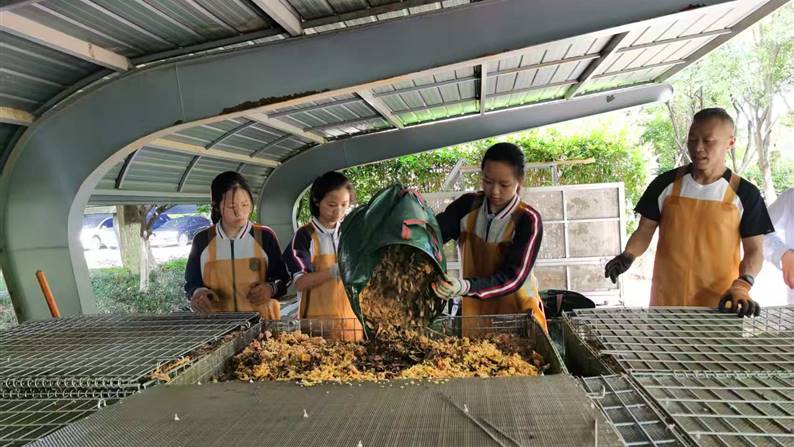
零废弃学校建设之厨余垃圾篇
10-24 · 来源:中国浙江省宁波市鄞州第二实验中学 · 作者:中国浙江省宁波市鄞州第二实验中学
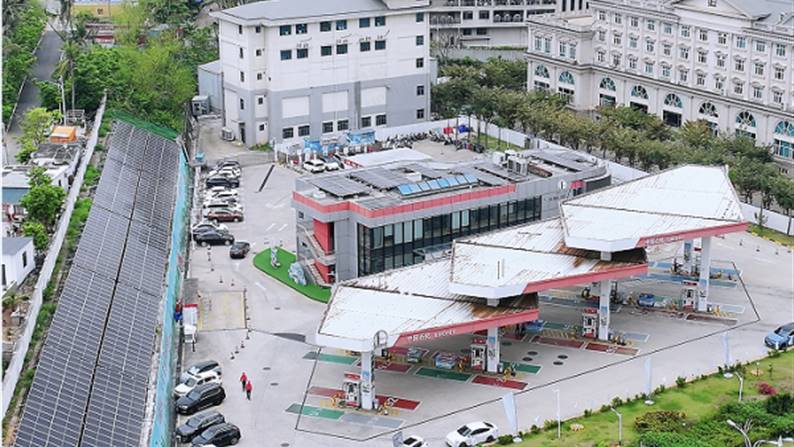
能源至净,生活至美,积极打造碳中和
10-24 · 来源:中国石化销售股份有限公司海南海口石油分公司 · 作者:中国石化销售股份有限公司海南海口石油分公司
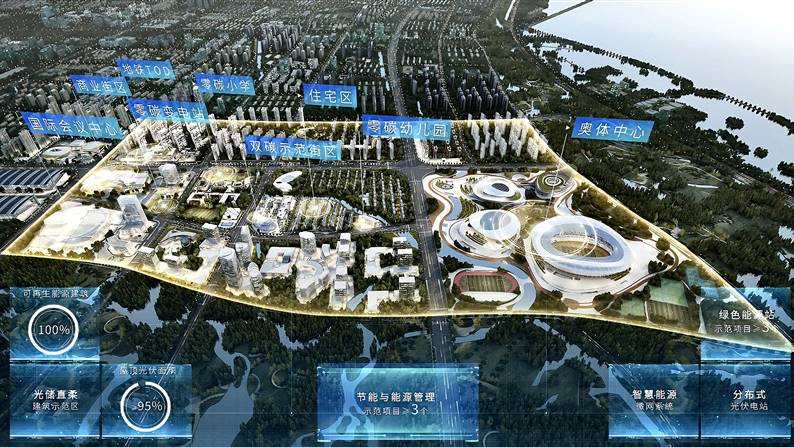
无锡中瑞低碳生态城
10-23 · 来源:无锡中瑞低碳生态城 · 作者:无锡中瑞低碳生态城